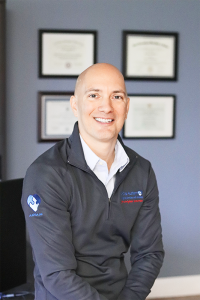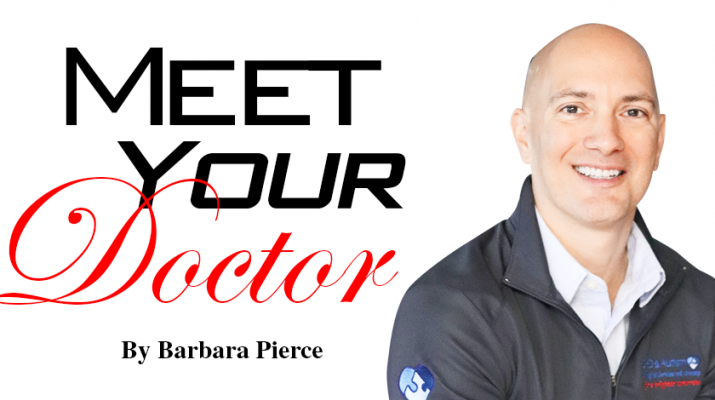Andy Lopez-Williams, clinical and forensic neuropsychologist, is president and clinical director of ADHD & Autism Psychological Services and Advocacy in Utica and Syracuse. He specializes in the assessment and treatment of neurodevelopmental disorders of children and adults, including attention deficit hyperactive disorder and autism. In 2007, Lopez-Williams founded AAPSA.
By Barbara Pierce
 Q.: What was your vision in founding AAPSA?
Q.: What was your vision in founding AAPSA?
A.: I’ve always seen AAPSA as a way to bring the very best evidence-based assessment and treatment services to the community, and to deliver these services with compassion and respect for every individual we encounter.
My staff and I enjoy being that place where people feel like they have received the help they need to improve their lives. It’s hard work, but the feedback we get from patients and families whose lives we have positively impacted helps maintain our enthusiasm and commitment to helping others.
Q.: What is the main thing you would like the community to know about AAPSA?
A.: The most important thing to know is that we can help. There are effective treatments for most mental health and neurodevelopmental disorders.
Unfortunately, I often hear statements like, “Let’s wait and see if he grows out of it.” These statements are the worst advice a parent can receive. The reality is the earlier that a problem is treated, the better the outcome.
If I could change one thing, I would want parents, teachers, and physicians to avoid waiting to get a child assessed. If you suspect there is a problem, get your child evaluated. Waiting often leads to worsening of symptoms and makes it harder to achieve gains. In many cases, we can identify problems in development as early as 18 months. If you are concerned, bring your child to a specialist who can help determine if there really is a problem that requires treatment.
Q.: What are you most passionate about?
A.: Professionally, there is nothing more important to me than truly helping people. In order to do this, it is critical that I never stop learning. There is nothing more rewarding to me than to hear that I have helped someone improve his or her life. I am continually humbled and honored that people would choose us to help them, and I feel a great sense of responsibility to do everything we can to provide them with the absolute best possible care.
To do that, I can never be satisfied with my knowledge and skill. I love learning new methods for helping people so I can continue to improve as a clinical neuropsychologist. Honestly, I lose sleep thinking about people who really need help but are not getting that help. We, as a field, have the knowledge and ability to help people but there are so many barriers to people getting the care they need. It’s incredibly unfortunate that anyone in our society today has to go without care.
Q.: Many of the children you treat, and their parents, have multiple challenges. What would you like parents to know?
A.: Parenting is difficult, and parenting a child with a neurodevelopmental disorder may be one of the hardest jobs in life. Parents can often feel isolated and blame themselves for their child’s problems.
I wish that I could help all parents realize that they are not to blame but that they are part of the solution. For any child, the parent is the person who will spend the most time with that child, love that child more than anyone, and has a vested interest in the child’s future. Thus, it makes perfect sense to me that we should be helping parents feel more empowered and effective in helping their children.
At AAPSA, our services are based on our view that parents should be respected and valued as the most important persons in helping children.
Q.: Is there a waiting list for your services?
A.: Occasionally, we may have a brief wait to get treatment, but we work hard to not have people wait. If someone contacts our office, they are scheduled as soon as possible for an evaluation. After the evaluation, we make treatment recommendations and work diligently to get them into treatment as soon as possible.
Q.: How do people pay for the services of AAPSA?
A.: All of our services are typically covered by insurance. Occasionally, insurance companies will decline to cover services but we pride ourselves in fighting those battles with insurance companies for our patients.
Lifelines
Birth year: 1970
Birthplace: Utica
Current residence: New Hartford
Family: Married with three children. My wife and I love spending time with our kids and instilling core values in them that will allow them to be kind, caring, and responsible adults.
Hobbies: I love spending time with family and friends. Besides reading, I really enjoy fitness, sports, and travel. My wife and I own THRIVE Athletic Center in New Hartford and we are committed to helping people be healthy, well, and happy. I am a certified spinning instructor and exercise regularly.

